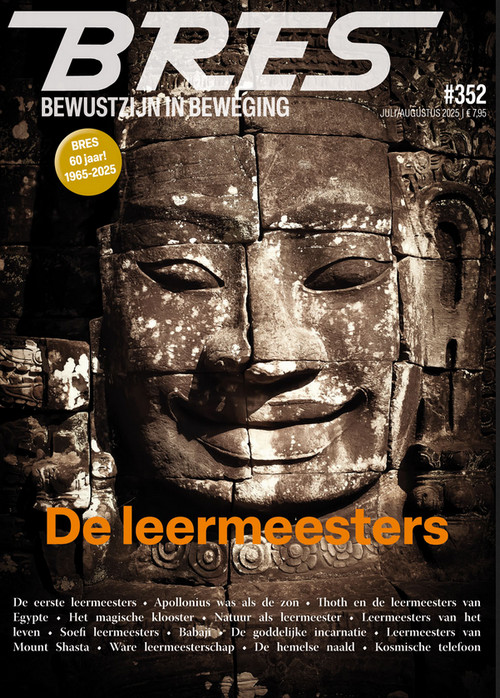Presidential Interpreter Fred Burks
Tells High-Level Interpreting Stories
Dear friends,
Not many people have had the privilege of working directly with our world leaders. As I was most fortunate to have had this great honor, and as I resigned from interpreting work in late 2004 after 18 years with the U.S. Department of State, I thought I’d share with you brief descriptions of some of the many fascinating experiences I had while working as an Indonesian language interpreter with top dignitaries.
To read the inspiring story of the many little miracles that led me to this most rewarding work, click here. A key empowering revelation I had from my time spent with these leaders is that, though these people may know more than us about what’s happening behind the scenes in global politics, they are much more like you and me than you might ever imagine. You take care and have a great day and week ahead!
With very best wishes,
Fred Burks
Former language interpreter for Presidents Bush and Clinton
Note: For a Washington Post article on my resignation due to excessive secrecy demands, click here
A Chronology with Brief Descriptions of
My High Level Interpreting Experiences
By former presidential interpreter and website founder Fred Burks
March 6-12, 1995 – UN World Summit for Social Development, Copenhagen
Upset at the US because of a recent political statement, Indonesian President Suharto refuses to meet Vice President Al Gore just hours after I arrive in Copenhagen to interpret for their meeting. Yet as the US Mandarin interpreter missed her plane, and as I also speak fluent Mandarin, I receive a late night call asking me to interpret the next morning for a meeting with the Chinese delegation. Waiting in the receiving room that morning, I watch Chinese Premier Li Peng get very upset that Gore (who is finishing up a meeting with an African president in the adjacent room) is not there to greet him several minutes before the appointed meeting time. The premier storms out of the receiving room with his entourage two minutes before the scheduled time, exclaiming to US officials that Gore’s tardiness is an insult and an outrage. “If Gore wants to meet with me,” Li Peng blares, “he can come to my office.” The Chinese delegation is located far across the pavilion. To avoid an international incident, a very tired Gore runs across the huge compound, much to the consternation of the Secret Service, to meet with the the upset Chinese.
Oct. 26, 1995 – White House meeting with Clinton, Gore, Indonesian President Suharto
In bargaining about the potential sale of a fleet of F-16 fighter jets to Indonesia, President Suharto claims, “We’re just a poor country.” Al Gore has legs crossed, chews gum (both culturally inappropriate), and talks very fast during the meeting. I am impressed when a White House secretary tells me that President Clinton knows the names of the kids of all the many White House secretaries. He is very well liked by his staff. His advisor hounds him immediately after Suharto leaves with suggestions on how he could have done better and what to do next.
June 23, 1997 – USMC Commandant General Charles Krulak meets Indonesian counterpart General Suharto (not the president)
At a special dinner in General Krulak’s personal residence, a three-star US general tells of several amazing experiences he witnessed in a visit with Indonesia’s special psychic forces. Among other amazing feats, he saw Indonesian troops on motorcycles successfully ride blind-folded through an obstacle course. He also hid a coin in a large grass field where he couldn’t have relocated it himself, yet psychic troops who had not seen him hide the coin were able to immediately locate it. General Krulak laughs all this off as psychic nonsense.
February 13, 1998 – Clinton/Suharto phone call
The call starts with several Indonesian advisors consulting among themselves about the content of the call. Then President Clinton joins in with the advisors to hear their recommendations. After conferring, President Suharto is called, and Clinton and Suharto converse with all listening. After the conversation, Clinton debriefs with his advisors. Clinton then hangs up, and the advisors discuss further on their own (Contrast with President Bush who never used any advisors on the three calls I did with him). Due to a party with all my best friends on my 40th birthday, I miss interpreting for a second call a week later.
Sept. 30 – Oct. 1, 1998 – Chiefs of Defense Conference, Honolulu
The most secret meeting at this conference is a one-hour discussion attended only by the top military chiefs of the 20 Pacific Rim nations represented and the few assigned interpreters. Nothing remotely resembling cover-up or conspiracy is discussed. These top generals and admirals focus largely on how they can better work together to provide regional security.
March 4 – 5, 1999 – Secretary of State Albright with President Habibie, others
There is lots of wrangling with numerous last minute changes before Albright is finally allowed to meet with East Timorese rebel leader Xanana Gusmao. She has to meet with pro-Indonesian Timorese before they agree to let her meet Gusmao. Her 26-hour visit keeps 60 US embassy staff busy for weeks. I only spend about 30 minutes actually interpreting, though I am present for most meetings in the event a non-English speaking participant should speak. During the time I sit quietly in these many meetings, I focus on sending love to these leaders and inviting them to open to what is best for all of us. In a meeting with (future president) Megawati, Assistant Secretary of State Stanley Roth asks me to speak louder, but also highly compliments my work stating, “Albright wants to hire you.” These two women leaders thoroughly enjoy their brief conversation. Because of the long travel times involved, I receive payment for six days of work at over $400/day.
April 2000 – Armandina Gusmao and other East Timor (Timor Leste) Leaders
During a one-month study tour of the US, the future East Timorese President’s sister, Armandina, shares with me a number of incredibly inspiring stories of narrow escapes and spiritual protection she received while under arrest. She was under threat of murder and rape several times. She told of being friends with the wife of East Timor’s Indonesian governor, all the while sending important information she received from the governor’s wife and others to her brother’s secret rebel base. During one meeting, a top former UN official describes corruption at the highest levels of the UN East Timorese mission, which is preventing a truly representative democracy from being established there. He lost his job for exposing what he found.
Sept. 18 – 21, 2001 – Indonesian President Megawati’s visit to White House, more
Only a week after the 9/11 attacks, Indonesian President Megawati Soekarnoputri meets with US President Bush in the Oval office. She also meets Vice President Dick Cheney, US Trade Representative Robert Zoellick, Secretary of State Colin Powell, the House International Relations Committee, women senators Boxer, Feinstein, and Carnahan, Treasury Secretary Paul O’Neil, the Senate Foreign Relations Committee, World Bank Director James Wolfenson, National Security Advisor Condoleezza Rice, IMF Managing Director Horst Kohler, and Henry Kissinger.
Before our first meeting, President Megawati’s main interpreter asks me to take his place and interpret for him. I tell him that this is strictly against protocol. After pressuring me several other times with no success, he finally exclaims with exasperation, “Megawati doesn’t like me.” In the end I agree, and end up interpreting for both sides in many meetings. Megawati always speaks in Indonesian at these meetings. Though she can speak and understand English fairly well, she sometimes misunderstands, which can lead to embarrassing situations. Her personal friend Karen Brooks, the Director for Asian Affairs of the National Security Council (NSC), convinces Megawati to allow me to whisper simultaneously into her ear, so that whenever she misses something in English, she can catch what was said in my interpretation. This works beautifully throughout the three-day visit.
Oval Office meeting between presidents. I am given the talking points the previous day by NSC Asian Affairs Director Karen Brooks. As this is only one week after the 9/11 attacks, terrorism accounts for about half of the topics to be discussed. However, the other topics include long, detailed information on Indonesia. I ask Karen how President Bush will be able to discuss such detailed information on Indonesia, to which she responds, “I don’t know.” At the meeting itself, President Bush uses no notes or prompting during their 90-minute conversation, yet covers all topics very well! This is highly unusual. I could not have done it. Did he possibly use an earpiece? (for more on this, click here) As we prepare to bid farewell after a short stroll through the White House, President Bush makes eye contact with me, expresses his gratitude, shakes my hand, and comments “Good job.” I sense a sincere warmth. During a photo-op before the Oval Office meeting, a White House official insists I stand in the wrong position, yet this ends up putting me on national television that evening.
Pre-banquet private meeting. 40 top US industry CEOs talk for about two minutes each. Each of them lectures President Megawati on what they think she should do to stimulate investment in her country. Yet amazingly, Megawati is given absolutely no time to respond! This is culturally very inappropriate, tantamount to an insult.
World Bank President James Wolfenson. At one point in this meeting, Wolfenson states, “My assistants won’t support me in this, but I recommend you focus on small and medium-size domestic industry.”
Special flight to New York City to meet with Kissinger. President Megawati meets only with the top echelon of leaders in her three-day visit to the US. Yet the government arranges to have her make a special flight to New York for a one-hour meeting with Henry Kissinger. Very strange. I am not included in this one. He is obviously still very powerful.
C St. House. This is a place in Washington DC about which few people know, where all members of Congress are invited to set aside party differences, and to connect in a deeper, non-political way in an unofficial context. The saying used here is “We are all the same before God.” This common ground was established in 1942 at a time of global crisis. On her visit here, Megawati is invited to create a similar place for the Indonesian Parliament. After this inspiring meeting, one congressman comments to me, “I wish I could communicate with my wife the way you do with Megawati.” As we near the conclusion of Megawati’s US visit, one Indonesian minister in the delegation invites me to his home. Another offers vital information, and a couple Indonesian officials even suggest the possibility of hiring me to interpret for Megawati in future.
Sept. 16, 2002 – Secret Meeting with President Megawati in her home
I receive a call on Friday asking if I can take a flight the next day to interpret at a secret meeting in Indonesia. Present at the meeting are US Ambassador to Indonesia Ralph Boyce, NSC expert Karen Brooks, and a CIA agent presented as a “Special Assistant to the President.” They pressure Megawati to “render” (secretly capture and turn over) Abu Bakar Ba’asyir, who is accused by the US of being the mastermind behind Jemaah Islamiah, which is suspected to be a sister organization to Al Qaeda. The “Special Assistant” states that through the confessions of Omar al-Faruq, who Indonesia previously rendered to the US, they now have proof Ba’asyir attempted to assassinate Megawati twice.
Megawati responds that she can’t fulfill their request as Ba’asyir is too well known (he’s something like a Muslim version of Jerry Falwell or Pat Robertson in US). After the US team puts further pressure on her, she states that she could do this “only if public support of him were to change.” The special assistant responds with an apparent threat, “There will be problems if Ba’asyir is not rendered by the APEC meeting,” which will take place in six weeks. President Megawati’s response: “I hope this doesn’t lead to a severing of the good relations between our two countries.” The US team is quite surprised by this response. They later ask me to confirm that this is what she actually said.
The intelligence shared with Megawati in this meeting and much more is leaked to Time, who puts the story on the front page of their Sept. 23rd issue. Karen Brooks thinks Indonesian intelligence leaked this classified information, as they were also briefed. I witness the many layers of secrecy in the US embassy. Heavy barricades around the embassy show just how defensive the US government has become.
Funny story. In my hurry to pack and leave for this meeting, for the first time I forgot to pack my dress shirts on this trip. As I had a day in Indonesia before the scheduled meeting, I ran out and bought new shirts, but hadn’t yet ironed them. While working in casual clothes at the embassy, I was told there had been a sudden plan change, that we were going to have the meeting “now!” instead of next day. When I told an embassy official that my clothes weren’t ready, he looked at me, asked the size of my neck, waist, chest, inseam… I ended up wearing his suit to the meeting, which amazingly was a perfect fit!!! This is quite a miracle for someone who is six feet four inches tall!
Then on Oct. 12th, the Bali bombing. 202 lives are taken. Australia loses more than any other nation with 88 killed. The Australian government and public, which had previously been quite resistant, instantly changes to support the US war on terror. The bombing is pinned on Ba’asyir by US intelligence, who claims Ba’asyir is the head of Jemaah Islamiah (JI). This leads to Ba’asyir’s arrest and imprisonment, easily within the six-week timeframe given at the secret meeting. This is all very convenient for the US. A little too convenient in my opinion. Many in Indonesia doubt the US intelligence backing these claims. So do I. US officials continually deny putting any pressure on Indonesia regarding Ba’asyir.
For a more detailed description of this meeting, see http://www.WantToKnow.info/050228secretmeeting.
For former Indonesian president Wahid’s claim that the police or military may have played a role in the bombing, see the Sydney Morning Herald article available here. For further possible CIA links, click here and here.
Sept. 23 – 24, 2002 – Asia-Europe Meeting (ASEM) – Copenhagen
25 countries gather at this meeting with 21 heads of state represented. Blair and Schroeder are the only major leaders unable to attend. Among those present are Jacque Chirac of France, PM Junichiro Koizumi of Japan, Premier Zhu Rongji of China, PM Silvio Berlusconi of Italy, and Pres. Kim Dae-Jung of Korea. Their conversation is highly critical of the US desire for war in Iraq. Berlusconi, recently back from a Camp David visit with President Bush, is the only one who stands to support the US in its desire for a war on Iraq. Chiraq immediately berates him for coddling up to power. Berlusconi sheepishly stands up and apologizes. 52 interpreters representing 17 languages facilitated the conversation at this summit. According to other interpreters with whom I talked, these summits are almost always boring, but this one is quite fascinating. I was also informed that Denmark’s most conservative party is more liberal than the US Democrats.
Oct. 21 – 25, 2002 – High-ranking Indonesian police
At a high level conference held just outside Washington, DC, a three-star US intelligence general tells top Indonesian police officials, “Everything I say is true.” Shortly afterward, he states, “There are no CIA agents in Indonesia.” The Indonesian police generals don’t believe him. I am informed that one of the best speakers, a US four-star general, quit the military after the Gulf war because of major underhanded deals and secrecy going on, which he saw were clearly not in the interests of the nation. He gives an excellent talk on communication. Our conference is peppered with news of the sniper incident, which unfolds while we meet. In massive shopping sprees, many of the Indonesian police generals spend well beyond what their salaries would allow.
Oct. 23 – 27, 2002 – APEC in Mexico
Though I was not present, a colleague later relates to me that after a high-level meeting, President Bush threw a serious temper tantrum using four-letter words and all. He shouted that he was sick and tired of his job. Not realizing anyone besides his advisors were in the room, as soon as Bush realized my colleague was there, he instantly transformed into a “good ol’ boy,” smiling and joking with this colleague.
2003 – Bush/Megawati phone calls Feb 18, Feb 19 (Iraq), Aug 6 (Marriott condolences)
No advisors are used for these calls. For the first call, the White House situation room dials what should be President Megawati’s personal phone number, but gets a young-sounding Indonesian woman who immediately complains that she’s going to bathroom and hangs up. I only realize later that this is Megawati’s answering message, designed to scare away those who might mistakenly call her. Megawati avoids answering the phone at the predetermined time of two calls, tantamount to a polite slap in the face. Though she doesn’t say so, she is clearly not happy about President Bush wanting her to support his war in Iraq. Before one of the calls, I ask the White House situation room liaison how long our phone call will last. He guarantees me it will not take more than 15 minutes, as the next call is with the crown prince of Saudi Arabia. He smugly tells me that the crown prince won’t wait for President Bush! So who’s more important here?
Sept. 23, 2003 – UN General Assembly, Bush and Megawati at Waldorf in New York
While waiting for the Indonesian delegation, President Bush asks Colin Powell, Condoleezza Rice, and Chief of Staff Andrew Card, “What do you want me to say?” After the delegation leaves and while waiting for the following African delegation, he again asks what he should talk about. He also cracks some jokes about sex shops in Thailand.
Oct. 22, 2003 – Bali: Bush with Megawati, four religious leaders in a four-hour visit
To arrange for this four-hour stopover, several hundred Americans work in Indonesia at a secure, five-star hotel for a week, and some for several weeks. As I arrive three days early, I am able to see again some of the detailed and scripted planning that goes into these high-level visits. Most of it is about security and making sure the leaders look and sound good to their public. On the morning of the visit, I run into a dead dolphin on the beach near the hotel. Strange omen. I notice during the several meetings how President Bush is very good at making no sound like a yes, particularly in regards to Indonesia’s repeated requests for access to Indonesian citizen and suspected terrorist Hambali. Lunch conversation between the two presidents is all about personal stuff—cattle, kids, the difficulties of being a president, etc. Bush again is very nice to me, asking “Do you want water?” and “Aren’t you hungry?” This is rare kindness exhibited by very few for whom I’ve worked in my many years as an interpreter. As is usual for events like this, there is a huge party for the hundreds involved in planning the visit the evening after Bush leaves. For more on this meeting, click here.
Late April 2004 – Wolfowitz with Indonesian journalists in Pentagon
Deputy Secretary of Defense Paul Wolfowitz walks into the room for our scheduled meeting at the Pentagon. He sees me first and immediately demands to know “Who is this?” In fact, I had previously worked with him a couple times. I’m told by a Pentagon staffer that he has become quite paranoid.
Sept. 2004 – Famous Indonesian lawyer Munir assassinated
An incredibly brave human rights lawyer with whom I once traveled for a month is poisoned on a flight to the Netherlands. He dies at age 39. Munir was a member of the human rights commission investigating East Timor atrocities and arguably Indonesia’s most famous human rights lawyer. He founded IMPASIAL (Indonesian Human Rights Watch) and KONTRAS (Commission for Missing Persons and Victims of Violence). He was fearless and had many previous death threats. In our time together, he told me that he could be arrested or assassinated at any time because he was one of the very few willing to investigate and pursue some of the deepest cover-ups. He is one of many incredibly brave, inspiring individuals with whom I had the privilege to work.
Nov. 18, 2004 – Contract terminated
I resign from my work with the State Department (terminate my contract), largely because of a new secrecy clause I would have had to sign in our new contract. For more on how I came to resign and an article in the Washington Post on my resignation, see: http://www.WantToKnow.info/fredburksresigns.
Jan. 11 – 17, 2005 – My testimony in Indonesia brings me short-term celebrity status
I travel to Jakarta, the capital of Indonesia, to testify in the high-profile terrorism case of Abu Bakar Ba’asyir. My testimony makes headlines across Indonesia and is even reported on BBC and in the Boston Globe. Indonesians are very interested in my deep cover-up research and WantToKnow.info website. I speak on Indonesia’s most popular TV news talk show and one of their most well-known radio talk shows. By the time I leave after six days in the country, I have truly become a celebrity, yet I’m happy to get back home to a more quiet life. For more on my week as a celebrity, click here.
Feb. 22, 2005 – Wall Street Journal publishes front-page article on me and my work
The Wall Street Journal features a front-page article on me covering my recent Indonesian court testimony, my work exposing major cover-ups, and much more. I was quite aware that the two WSJ reporters assigned to this story were tasked with making me look bad, as I had revealed some secrets of the military-industrial establishment. I even told them I was aware of this and asked only that they be honest in their reporting. I feel they did a great job. The article is highly critical of me in places, yet in other parts it is quite praiseworthy. I was particularly thrilled that they even mentioned the websites I manage, including WantToKnow.info. This article led to numerous other interesting contacts and opportunities. Click here to read the article.











2 gedachten over “Presidential Interpreter Fred Burks Tells High-Level Interpreting Stories”
Reacties zijn gesloten.